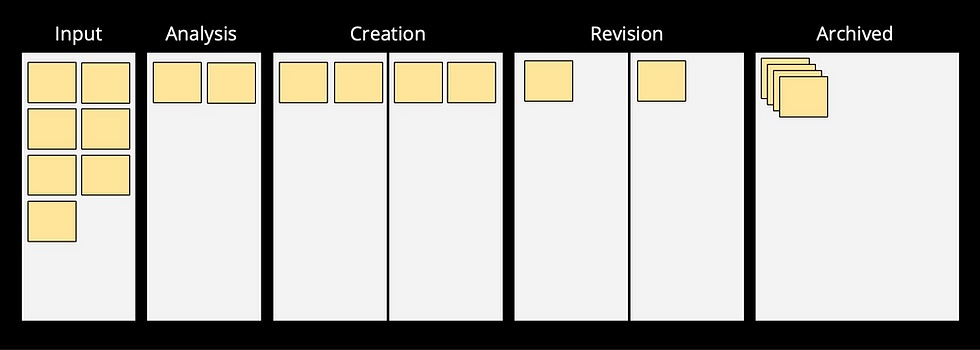What Agile really means
- Rafael Sabbagh
- May 31, 2023
- 2 min read
Updated: Dec 8, 2023
We brought the late Mike Beedle to Brazil in 2014. In a small restaurant by Copacabana beach, he, I, and my partners from K21 celebrated the success of his lecture which opened the first Scrum Gathering in Rio de Janeiro.
Amidst one beer after another, Mike showed us notes he had made back in 2001 during the meeting that gave birth to the Agile Manifesto. It's incredible that he still had them on his cell phone after all this time! We had only a few seconds to delve into something so fascinating to us. I managed to read a few words from a list at the top of the document, which he said were candidates for naming the new movement. Mike then told us that "Agile," the term that prevailed, was his suggestion. "Adaptive," everyone's favorite, was set aside because it already served as the title for Jim Highsmith's book, "Adaptive Software Development," another one of the seventeen present at that fateful meeting.

"I want my teams to be agile because they will work faster." Perhaps. But being agile doesn't mean going as fast as a bullet train that reaches its destination quickly but cannot change direction along the way, not even to avoid an imminent accident. Being agile is more like being a cheetah, chasing its prey across the savannahs of Africa, making instant decisions, dodging obstacles, and adapting to whatever is necessary to secure its meal. It's a fact that the cheetah is known as the fastest land animal on the planet. But what makes it a great hunter is precisely the ability to change direction suddenly, according to what the circumstances demand.
Being agile means being adaptive. "Adaptiveness," therefore, is more than just "speed." It's also more than mere "adaptability," which is the capacity to adapt. Being agile is having the characteristic of constantly adapting according to the needs.
But adapt for what purpose? In nature, species adapt to survive and endure. In the business world, it's not much different. Business Agility, one of the trendy terms at the moment, is nothing more than an organization's capacity to constantly adapt in the face of this volatile, uncertain, complex, and ambiguous environment in which we live today (or VUCA, in English, another trendy term).
A company adapts in order to continue generating value for its customers and, in turn, maintain or improve its position in the market. If it doesn't adapt, it will eventually die. It may not happen today, but it will. Blockbuster, Kodak, and Nokia are undeniable examples.
Given all this, my definition of "being agile" for an organization (which I doubt is mine alone) is something like this:
"Being agile means constantly adapting to deliver the greatest possible value to its customers at every moment."
By the way, Mike and I stayed in touch in the years following that meeting, whether through email or through mutual friends in Spain, where we took turns teaching Scrum classes. It was a shock to hear the news in March 2018 that he had been brutally murdered in a robbery in the early hours of the morning in Chicago, the city where he lived with his wife and children.

Comments